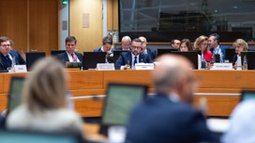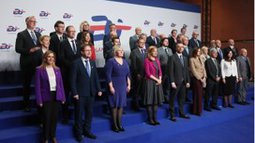Competitiveness Council
01WHAT’S UP
02INTRODUCTION
The Council of the European Union (informally often also called Council of Ministers, Council or Consilium) is the principal decision making institution in the European Union. Like the European Parliament, the Council was set up by the founding treaties in the 1950s. The Council is a single body, but for reasons relating to the organisation of its work, it meets – according to the subjects on the agenda – in different "configurations". These are attended by the ministers from the Member States and the European Commissioners responsible for the areas concerned. So, for example, when discussing research policy issues, the national research ministers responsible form the Council.
Currently, there are nine configurations of the Council. Research policy issues are covered by the configuration "Competitiveness (Internal Market, Industry, Research and Space)".
The decision-making procedure within the Council depends on the Treaty provisions for the subject being dealt with. According to these provisions, there are three types of voting systems: simple majority (for procedural decisions), qualified majority (a weighted voting system based on the populations of Member States, used for many decisions concerning the internal market, economic affairs and trade), and unanimity (e.g. for foreign policy, nuclear research issues, defence, judicial and police cooperation, and taxation).
The general decision-making procedures at European level also depend on the Treaty provisions: the Council can take decisions either through the consultation procedure or through the so-called "co-decision" procedure.
Each member state in turn holds the presidency of the Council for a period of six months (January – June; July - December), in accordance with a pre-established rota. The Council of the EU provides information on the current Council Presidency as well as on the order of rotation of upcoming presidencies: http://www.consilium.europa.eu/en/council-eu/presidency-council-eu/
04MEETINGS
11MEMBERS
Mr. Martin KOCHER (Internal Market, Industry),
Federal Minister for Digital, Business and Enterprise
Mr. Martin POLASCHEK (Research),
Federal Minister for Education, Science and Research
Ms. Leonore GEWESSLER (Technology, Space),
Federal Minister of Climate Action, Environment, Energy, Mobility, Innovation and Technology

